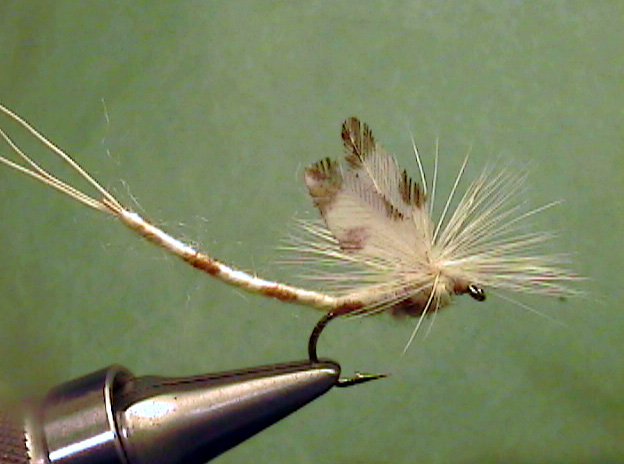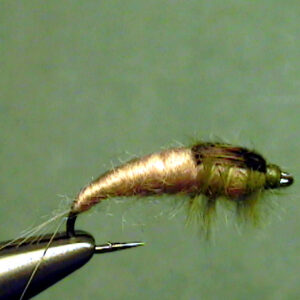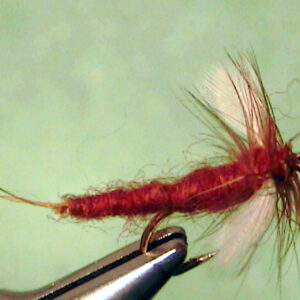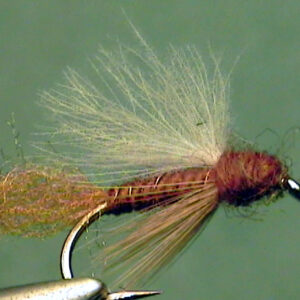Hook Size: 10
The Perfect Fly Brown Drake Dun is an excellent imitation of the adult stage of life of the mayfly. It imitates the mayfly as it drifts or floats on the surface, drying it wet wings enough to fly off the water onto the banks, bushes or trees where it will eventually change into the spinner stage of life. It even imitates the dun down to two or three tails and it two upright wings. It is fished on the surface as a dry fly. It should be treated with floatant.
The duns usually stay on the water only for a very short time. The water and air is usually
warm enough that their wings dry rather fast. As we said, the hatch usually starts about
dark and sometimes after. It last on into the evening. It is much easier to fish a dry fly
than the emerger flies or nymph. You can keep track of the fly better and determine the
takes better in the low light conditions. All in all, however, I would not say if is otherwise
quite as effective. I had rather have less action and catch the fish than more action
without hooking many. When the trout takes the dun, you will usually know it even if you
cannot see your fly.Presentation:
A presentation that puts your Perfect Fly dun imitation in the area of the stream or lake
where you can best see it in the low light conditions may be the best way to go about it. If
you can get the available light lined up with your position and the fly to where you can
see it, you are probably using the best approach. This means you may need to cast
upstream, across stream or downstream depending on the light. The water is usually
fairly smooth where brown drakes hatch and you are usually able to do that and handle
the drag.
The problem becomes one of covering water. After you have made so many blind cast in
an area it becomes necessary to change your position. That is not that easy to do in
some cases when you are night fishing. It is usually best to stay in one general area and
move around as little as possible. This not only is the safest way to wade at night, it
spooks far less fish. In many cases, it may be best to refrain from casting until you see or
hear a trout rising near your position. Fishing at night takes practice and has its inherent
problems. Some anglers love it and others hate it. It can produce some big trout.
warm enough that their wings dry rather fast. As we said, the hatch usually starts about
dark and sometimes after. It last on into the evening. It is much easier to fish a dry fly
than the emerger flies or nymph. You can keep track of the fly better and determine the
takes better in the low light conditions. All in all, however, I would not say if is otherwise
quite as effective. I had rather have less action and catch the fish than more action
without hooking many. When the trout takes the dun, you will usually know it even if you
cannot see your fly.Presentation:
A presentation that puts your Perfect Fly dun imitation in the area of the stream or lake
where you can best see it in the low light conditions may be the best way to go about it. If
you can get the available light lined up with your position and the fly to where you can
see it, you are probably using the best approach. This means you may need to cast
upstream, across stream or downstream depending on the light. The water is usually
fairly smooth where brown drakes hatch and you are usually able to do that and handle
the drag.
The problem becomes one of covering water. After you have made so many blind cast in
an area it becomes necessary to change your position. That is not that easy to do in
some cases when you are night fishing. It is usually best to stay in one general area and
move around as little as possible. This not only is the safest way to wade at night, it
spooks far less fish. In many cases, it may be best to refrain from casting until you see or
hear a trout rising near your position. Fishing at night takes practice and has its inherent
problems. Some anglers love it and others hate it. It can produce some big trout.
Copyright 2013 James Marsh



